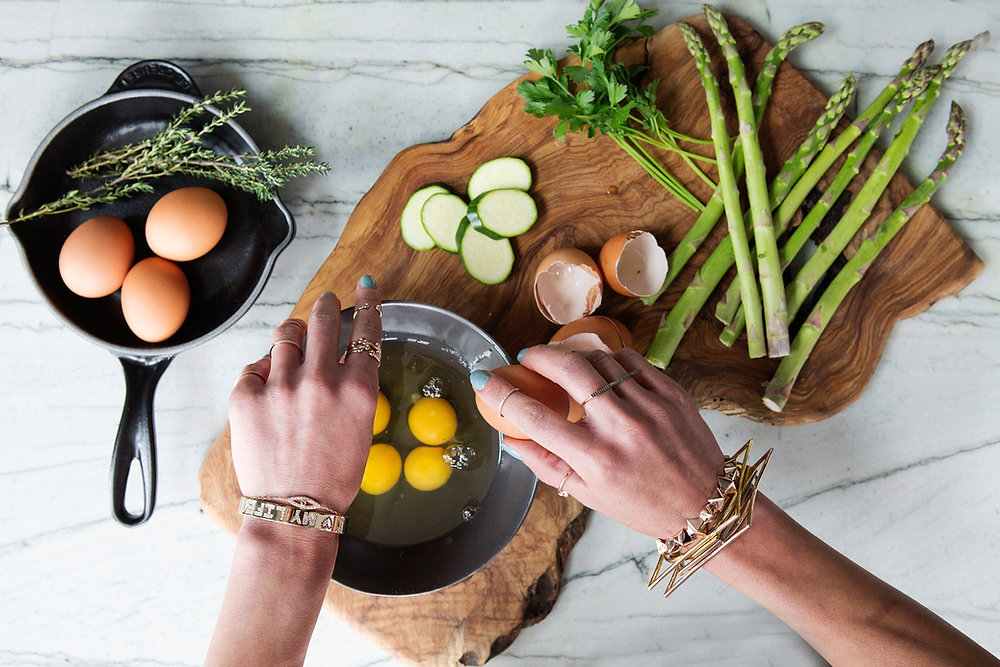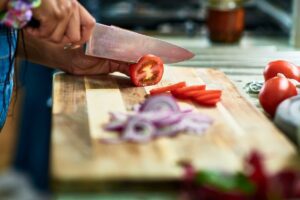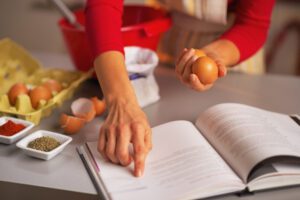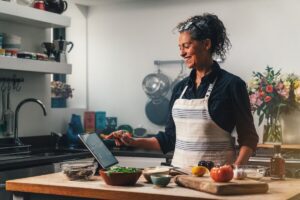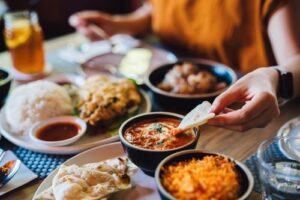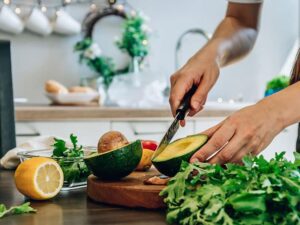How to Improve Your Cooking Skills at Home?
How to Improve Your Cooking Skills
Cooking is an essential life skill that not only saves money but also opens the door to a healthier and more satisfying lifestyle. Whether you’re a beginner or someone with a little experience in the kitchen, there’s always room for improvement.
With a wealth of resources and modern tools, honing your cooking skills at home is not only rewarding but also more accessible than ever. In this article, we’ll explore practical and effective ways to improve your cooking skills from the comfort of your own home.

Start with the basics
Before diving into fancy recipes or complex techniques, it’s important to master the basics. Start by learning how to properly handle a knife. Good knife skills not only make preparation faster and more efficient, but they also ensure safety. Practice basic cuts like slicing, dicing, julienne, and mincing.
Another fundamental aspect of cooking is understanding common cooking methods. Learn how to roast, sauté, boil, simmer, steam, and grill. Mastering these techniques lays the foundation for more complex culinary creations.
For example, mastering the art of roasting vegetables can elevate even a simple meal, while understanding how to simmer ensures perfectly cooked soups and stews.
Arrange and Prepare: The Power of Mis en Place
Professional chefs often emphasize mise en place, which means “everything in its place.” This practice involves arranging and preparing all of your ingredients before you start cooking. Chop your vegetables, measure your spices, and have your tools ready.
Not only does this make cooking more efficient, but it also helps you avoid mistakes or missing ingredients halfway through a recipe.
At home, try to implement this method with every meal you prepare. Over time, it will become a habit that enhances your overall cooking experience.
Experiment with recipes
If you’re used to cooking the same dishes over and over again, it might be time to step outside your comfort zone. Experimenting with new recipes is a great way to improve your cooking skills.
Start with simple recipes and gradually challenge yourself with more complex dishes. This process will expose you to new ingredients, cooking techniques, and flavor combinations.
Don’t be afraid to adapt recipes to your taste or the ingredients you have on hand. The more you experiment, the better you’ll understand how to balance flavors and textures, which is an essential skill for any aspiring chef.

Educate yourself about ingredients
Understanding your ingredients is an important part of becoming a better cook. Learn about the characteristics and flavors of different foods. For example, knowing that tomatoes are acidic can help you balance their flavor with sweetness or richness.
Similarly, understanding the differences between different cuts of meat or types of flour can improve the texture and flavor of your dish.
Explore seasonal ingredients, as they are often fresher and more flavorful. Visit your local farmers market to discover produce you can’t find at a standard grocery store. By working with high-quality ingredients, you can elevate even the simplest dishes.
Invest in the right tools
Having the right tools can significantly enhance your cooking experience. While you don’t need a kitchen full of gadgets, investing in a few standard essentials can make a big difference. A good chef’s knife, a sturdy cutting board, a cast-iron skillet, and a reliable set of measuring cups and spoons are great places to start.
Additionally, learn how to use your tools properly. For example, understanding how to maintain and sharpen your knives can make prep work more efficient and enjoyable. Similarly, mastering the use of a food processor or stand mixer can open up new possibilities in your cooking repertoire.

Watch and learn
The internet is a treasure trove of cooking tutorials and demonstrations. Platforms like YouTube offer countless videos that cover everything from basic techniques to cutting-edge recipes. Watching professional chefs or cooking enthusiasts can provide inspiration and valuable tips.
Cooking shows are another great resource. Programs like The Great British Bake Off or MasterChef are not only entertaining but also educational. Pay attention to how the contestants or chefs handle ingredients, plate their dishes, and fix mistakes.
Practice consistently
As with any skill, practice is the key to improvement. Make cooking a part of your routine by preparing meals at home as often as possible. Even simple tasks like boiling pasta or making scrambled eggs can help develop the skill. The more you cook, the more confident and efficient you will become in the kitchen.
Set small goals to challenge yourself. For example, aim to master a new recipe or technique each week. Over time, these incremental improvements will add up to significant progress.
Embrace the science of cooking
Cooking is both an art and a science. Understanding the chemical reactions behind cooking can help you make better decisions in the kitchen. For example, knowing how heat affects proteins can improve your ability to sear meat, while understanding emulsification can help you create silky-smooth sauces.
Books like Salt, Fat, Acid, Heat by Samin Nosrat or The Food Lab by J. Kenji López-Alt offer valuable insights into the science of cooking. These resources can deepen your understanding and inspire you to experiment with confidence.

Taste as you cook
One of the simplest yet most effective ways to improve your cooking is to taste your food throughout the process. This allows you to adjust seasoning and balance flavors before it’s too late. A pinch of salt, a squeeze of lemon juice, or a dash of allspice can take a dish from good to great.
Don’t be afraid to trust your palate. The more you taste and adjust, the better you’ll be at identifying what a dish needs to reach its full potential.
Learn from mistakes
Every cook makes mistakes, whether it’s overcooking a steak, burning a sauce, or using too much salt. Instead of getting discouraged, look at these mishaps as learning opportunities. Ask yourself what went wrong and how you can avoid similar problems in the future. Over time, these lessons will make you a more skilled and confident cook.
Explore spices and herbs
Spices and herbs are the foundation of flavor. Experimenting with different combinations can help you develop a better sense of flavor. Start with familiar options like basil, thyme, cumin, or paprika, then branch out to less common ones like sumac, fenugreek, or za’atar.
Another great way to customize flavors is to create your own spice blends. For example, mix cinnamon, nutmeg, and cloves for a hot spice blend, or combine coriander, turmeric, and chili powder for a strong curry blend.
Share your cooking
Cooking for others is a great way to get feedback and improve. Invite friends or family over for a meal and ask for their honest opinions. Sharing your creations not only motivates you to improve, but it also helps you learn how to adapt your cooking to different preferences and dietary needs.

Keep a Cooking Journal
Keeping a journal of your cooking experiences can help you track your progress. Write down the recipes you’ve tried, the adjustments you’ve made, and the lessons you’ve learned. Over time, this record will serve as a valuable resource and reminder of how far you’ve come.
Conclusion
Improving your home cooking skills is a journey that requires patience, practice, and a willingness to learn. By mastering basic techniques, experimenting with new recipes, and embracing the science of cooking, you can turn your time in the kitchen into a rewarding and creative experience.
Whether you’re cooking for yourself or for loved ones, the effort you put in will translate into delicious meals and a deeper appreciation for the art of cooking.
